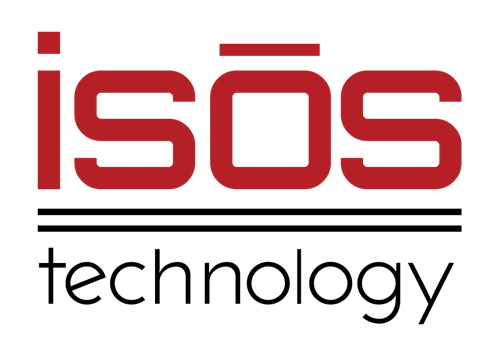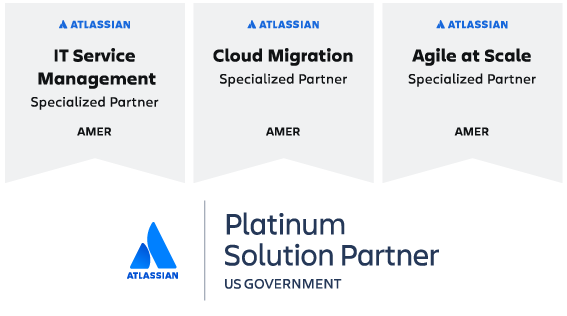
Choosing between Atlassian Cloud and Data Center is crucial for project management leads and IT departments. This choice significantly impacts team efficiency, control, and overall operations.
Atlassian Cloud offers simplicity and scalability, while Data Center provides customization and enhanced security. Understanding the nuances of each platform is essential for making informed decisions that support efficient operations and strategic growth.
Key takeaways
- Atlassian Cloud is a SaaS solution that is easy to set up and maintain.
- Atlassian Data Center offers self-hosting for control and customization.
- Cloud is cost-efficient with subscription pricing; Data Center requires an upfront investment.
- Cloud provides seamless scalability; Data Center offers complete infrastructure control.
- Cloud suits distributed teams with remote work features; Data Center ideal for large enterprises.
Choosing between Cloud and Data Center
Jira, Confluence, and Trello are essential Atlassian tools for modern project management. Choosing between Atlassian Cloud and Data Center requires a deep understanding of these tools and how they can optimize your operations.
In today's tech landscape, project management solutions are pivotal in ensuring efficient workflows, streamlined communication, and successful project delivery. Atlassian's tools enhance collaboration, increase productivity, and provide valuable insights into project progress.
The decision between Atlassian Cloud and Data Center hinges on scalability, customization options, security needs, and budget considerations. Cloud solutions offer flexibility, easy accessibility, and automatic updates, while Data Center provides greater control, enhanced security features, and the ability to manage resources on-premises.
Understanding Atlassian's offerings
Atlassian offers a robust suite of tools, including Jira, Confluence, and Trello, which are designed to streamline project management processes. These tools cater to different aspects of project management, from task tracking to collaboration and documentation.
Understanding the capabilities of each tool can help you make informed decisions on optimizing your project management workflows.
Overview of Atlassian tools
Enhance your project management workflows and elevate team productivity with Atlassian's suite of collaborative tools.
Among these tools, Jira stands out as a powerful platform for tracking tasks, managing workflows, and monitoring project progress. With Jira, you can create, assign, and prioritize tasks, set deadlines, and generate reports to keep your projects on track.
In addition to Jira, Atlassian provides complementary tools seamlessly integrating with project management workflows.
Confluence enables team members to create and share project documentation, fostering better communication and knowledge sharing.
Bitbucket offers robust version control capabilities, allowing teams to manage code repositories efficiently.
Trello provides a visual way to organize tasks and collaborate with team members flexibly and intuitively.
The benefits of using Atlassian Tools
Benefit from streamlined project tracking, seamless team collaboration, visual project management, and efficient code collaboration through Atlassian's suite of tools, which includes Jira, Confluence, Trello, and Bitbucket.
Streamlined project tracking: With Atlassian tools, you can easily track the progress of your projects in real-time, assign tasks to team members, and monitor deadlines, all in one centralized location accessible through cloud computing.
Seamless team collaboration: Atlassian fosters collaboration by providing a platform where team members can communicate, share documents, and brainstorm ideas within Confluence, facilitating efficient teamwork regardless of physical location.
Efficient code collaboration: Bitbucket's version control capabilities allow developers to work on code simultaneously, merge changes seamlessly, and maintain a clear history of revisions, ensuring smooth code collaboration and integration within your cloud-based environment.
File support can lead to increased project success rates and improved team performance.
Atlassian Cloud vs. Data Center: Key differences
When comparing Atlassian Cloud and Data Center for project management, the key differences lie in their deployment models.
Atlassian Cloud is a SaaS solution where Atlassian hosts and manages the software, offering more straightforward setup and maintenance.
On the other hand, Atlassian Data Center provides a self-hosted option, which gives more control over data and customization but requires more IT resources for management.
Deployment models explained
Exploring the deployment models of Atlassian Cloud versus Data Center reveals significant differences in how each system operates.
- Data Center: In a data center deployment, you manage and host the software on your servers, giving you complete control over security and customization.
- Cloud: With a cloud deployment, Atlassian hosts the software on its servers, handling maintenance, updates, and security for you. This offers easy scalability and accessibility from anywhere.
- Hybrid Options: Some companies opt for hybrid models, combining data center and cloud aspects to suit their specific needs. These models provide flexibility and customization while leveraging cloud benefits.
The Cloud (SaaS) model offers scalability, allowing you to quickly adjust resources based on your project's needs.
On the other hand, the Data Center (self-managed) model gives you more control over performance optimization and customization.
Understanding these distinctions will help you choose the best fit for your project management requirements.
Scalability and performance
For maximum scalability and performance in project management, understanding the differences between Atlassian's Cloud (SaaS) model and Data Center (self-managed) model is essential.
When it comes to scalability and performance, here's what you need to know:
- Cloud (SaaS) model: Atlassian's Cloud model offers seamless scalability, allowing you to adjust resources as your project grows effortlessly. With automatic updates and maintenance handled by Atlassian, you can focus on your projects without worrying about infrastructure. The Cloud model provides reliable performance, with data stored securely in the cloud for easy access anytime, anywhere.
- Data Center (Self-Managed) model: The Data Center model offers scalability by giving you complete control over your infrastructure. You can customize resources to meet specific performance needs, making it ideal for large enterprises with complex projects. However, managing and scaling the Data Center requires dedicated IT resources and expertise.
- Decision point: When choosing between the cloud and data center models, consider your scalability requirements and resource availability for optimal project management performance.
Cost efficiency and management
When considering cost efficiency and management between Atlassian Cloud and Data Center for project management, a critical aspect is the pricing models offered by both options. Understanding the differences in how each model structures its costs can notably impact your budget and overall financial strategy.
Pricing models
How can you determine which pricing model between Atlassian Cloud and Data Center is more cost-efficient and manageable for your project management needs?
When comparing the two options, consider the following factors:
- Subscription-based pricing: Atlassian Cloud typically offers a subscription-based pricing model, where you pay a recurring fee based on the number of users. This can be advantageous for scalability and budget forecasting.
- Upfront investment: On the other hand, Atlassian Data Center often requires a significant upfront investment but may be more cost-effective in the long run for larger organizations with stable user numbers.
- Additional costs: Evaluate any customization, maintenance, and support costs. While Atlassian Cloud may have lower initial costs, these extra expenses can impact the solution's overall cost-efficiency.
Operational management
Comparing Atlassian Cloud's subscription costs to Data Center's licensing expenses provides a clear insight into the financial aspects of operational management for project management solutions. When considering operational management, the following points are vital:
- Subscription costs: Atlassian Cloud offers a subscription-based model, allowing you to pay a recurring fee for usage. This can be advantageous for those looking to spread out costs over time without a significant upfront investment, which is common in data center licensing.
- Licensing expenses: Data Center typically involves one-time licensing fees, which might be higher initially but can result in cost savings over the long term compared to continuous subscription payments for cloud services.
- Cost for scalability: Anticipated long-term expenses for growth and support should be factored in when choosing between Cloud and Data Center. Cloud services often offer scalability with added costs as you grow, while Data Center may require additional licensing for expansion.
Consider these factors carefully to align your operational management strategy with the financial implications associated with each option.
Collaboration and remote work enhancements
Atlassian Cloud offers a range of benefits for distributed teams, making collaboration and remote work easier and more efficient.
Cloud enhances teamwork across different locations with features like real-time editing, instant messaging, and seamless file sharing.
These enhancements in communication and coordination can significantly boost productivity and streamline project management processes.
Benefits of Cloud for distributed teams
Enhance collaboration and optimize remote work efficiency by leveraging the benefits of Atlassian Cloud for distributed teams.
When it comes to distributed teams, the Atlassian Cloud offers several advantages that can significantly benefit your organization:
- Improved accessibility: With Atlassian Cloud, team members can access project management tools from anywhere with an internet connection, allowing seamless collaboration regardless of physical location.
- Real-time updates: Enjoy the benefits of real-time updates and notifications, which instantly inform all team members about project progress, changes, and deadlines.
- Enhanced integration: Atlassian Cloud seamlessly integrates with various other tools and applications, streamlining workflows and improving overall productivity for distributed teams.
Data Center for on-premises security needs
How can a Data Center solution address your on-premises security needs while providing real-time collaboration features and accessibility from anywhere and on any device?
Data Center solutions offer robust security measures tailored for on-premises software, ensuring your data stays safe while enabling seamless collaboration and access. Here's how Data Center caters to your specific requirements:
- Enhanced security features: Data Center solutions provide advanced security protocols, encryption methods, and access controls to protect sensitive information in your on-premises environment.
- Real-time collaboration tools: With Data Center, you can enjoy real-time collaboration features such as instant messaging, simultaneous editing, and task assignment, facilitating efficient teamwork regardless of physical location.
- Cross-device accessibility: Data Center solutions allow you to access project management tools from any device, be it a desktop, laptop, tablet, or smartphone, ensuring flexibility and productivity no matter where you're located.
Security and compliance
When choosing between Atlassian Cloud and Data Center for project management, it is essential to directly compare the security features of both options to determine which best suits your organization's security and compliance needs.
Understanding the differences in security measures can help you make an informed decision that aligns with your organization's needs and industry-specific compliance requirements.
Security features comparison
Compare the security features of Atlassian Cloud and Data Center to assess their strengths and weaknesses in guaranteeing compliance and data protection.
When evaluating the security capabilities of Atlassian Cloud versus Data Center, consider the following:
Data Center:
- Offers more control over security measures as it's hosted on-premises.
- Allows for customization of security protocols to align with specific organizational requirements.
- Enables stricter adherence to internal security policies and regulations due to localized data storage.
Atlassian Cloud:
- Benefits from Atlassian's robust cloud infrastructure with continuous security updates and maintenance.
- Provides automatic backups and disaster recovery options for enhanced data protection.
- Ensures scalability and flexibility in security features without manual maintenance tasks.
Compliance considerations
For compliance considerations, Atlassian Cloud guarantees thorough security protocols and undergoes regular audits, while Data Center offers customizable security levels tailored to meet industry standards.
When evaluating compliance for project management tools, here are essential factors to take into account:
- Regulatory requirements: Atlassian Cloud ensures compliance with major regulatory standards such as GDPR, HIPAA, and SOC 2, giving you peace of mind regarding data protection and privacy.
- Data sovereignty: A Data Center allows you to maintain control over your data location, which is essential for complying with specific regional or industry regulations that mandate data residency.
- Audit trails: Both Atlassian Cloud and Data Center provide detailed audit trails, enabling you to track user actions and effectively maintain compliance with internal policies and external regulations.
Customer support and community engagement
Atlassian offers a robust support network for customer support and community engagement to assist you with any issues or questions. Their dedicated team is readily available to provide guidance and solutions to guarantee a smooth project management experience.
Atlassian's active community forums allow users to connect, learn from each other, and share best practices for ultimate project management success.
Atlassian's support network
Engaging with Atlassian's robust support network provides users timely assistance and valuable insights for enhancing their project management experience. Here are three key aspects to keep in mind when utilizing Atlassian's support network:
- 24/7 support: Atlassian offers round-the-clock support for Cloud and Data Center users, ensuring that assistance is available whenever needed.
- Knowledge base: Access a vast repository of articles, tutorials, and best practices on Atlassian's platform, empowering users to troubleshoot issues independently and learn new features efficiently.
- Community forums: Join a vibrant community of users and experts on Atlassian's forums to ask questions, share experiences, and collaborate on solutions, fostering a supportive environment for learning and problem-solving.
User experience and training resources
For both Atlassian Cloud and Data Center, you can access various support options to enhance your user experience and find the necessary training resources. Here are some key ways to leverage support and training resources:
- Support options: Atlassian Cloud and Data Center offer extensive support through ticketing systems, live chat, and email support. You can quickly get assistance for any user experience issues you encounter.
- Training resources: Access a wealth of training materials, including tutorials, webinars, and documentation, to help you navigate the platforms effectively. Familiarize yourself with all the tools and features available to enhance your user experience.
- Community engagement: Engage with a proactive community through forums, meetups, and user groups. Share experiences, best practices, and tips with other users to optimize your experience and maximize the platforms' potential.
Making the right choice: Explore Atlassian Cloud and Data Center
Let's recap the advantages of Atlassian Cloud and Data Center, urging project management leads and IT department heads to assess their specific needs and take action by exploring Atlassian's offerings through a trial experience.
| Features | Atlassian Cloud | Atlassian Data Center |
| Scalability | Easily scalable to meet growing demands. | It is ideal for large enterprises with high user loads. |
| Customization | Limited customization options. | Extensive customization capabilities for tailored solutions. |
| Security | Strong security measures are in place. | Enhanced security features for stringent compliance needs. |
| Performance | Good performance for small to medium-sized teams. | High performance and reliability for mission-critical apps. |
| Cost | Lower initial costs and pay-as-you-go pricing. | Higher upfront costs but cost-effective for large volumes. |
Evaluate your organization's requirements, prioritizing flexibility and accessibility with Atlassian Cloud or focusing on control and security with Atlassian Data Center. Take the next step by exploring Atlassian's solutions to experience firsthand how they can elevate your project management and IT operations. Sign up for a trial today and witness the benefits of both platforms tailored to your specific needs.
Sign up to receive more great content
Learn more about Atlassian and how Isos can help by signing up to receive our latest blogs, eBooks, whitepapers and more.














